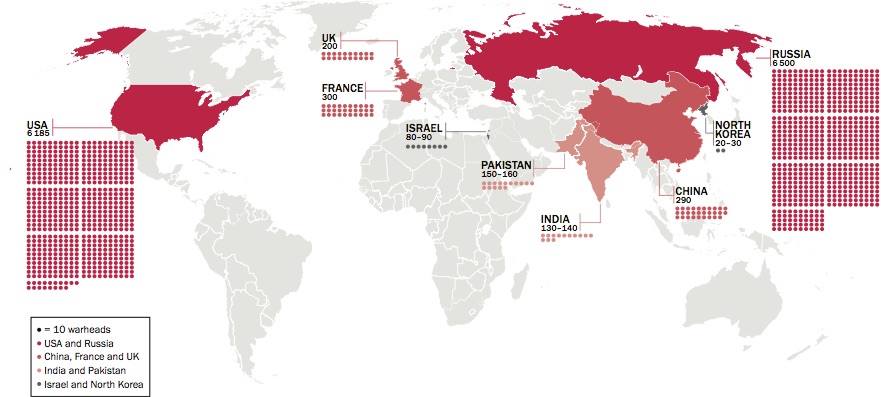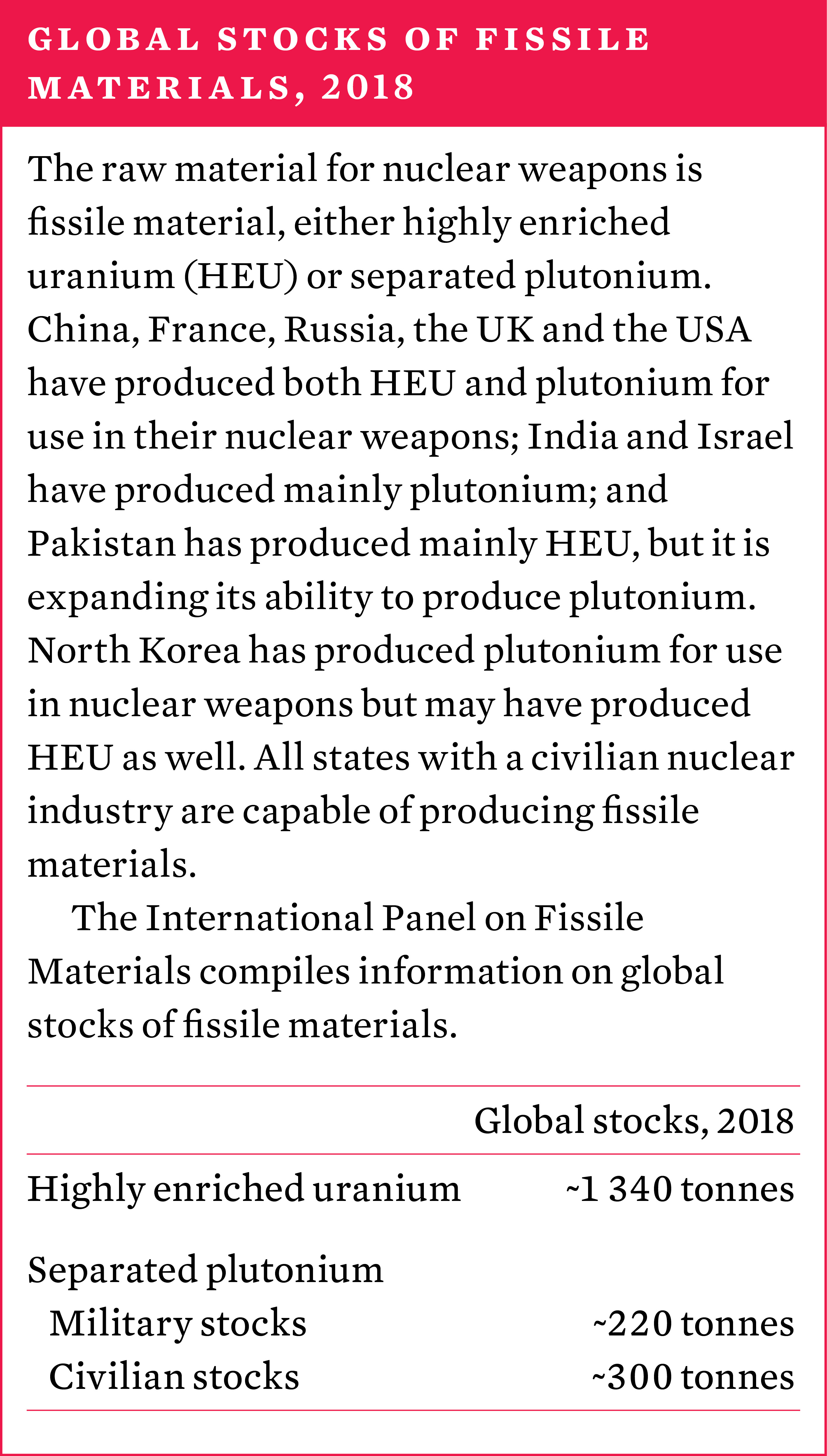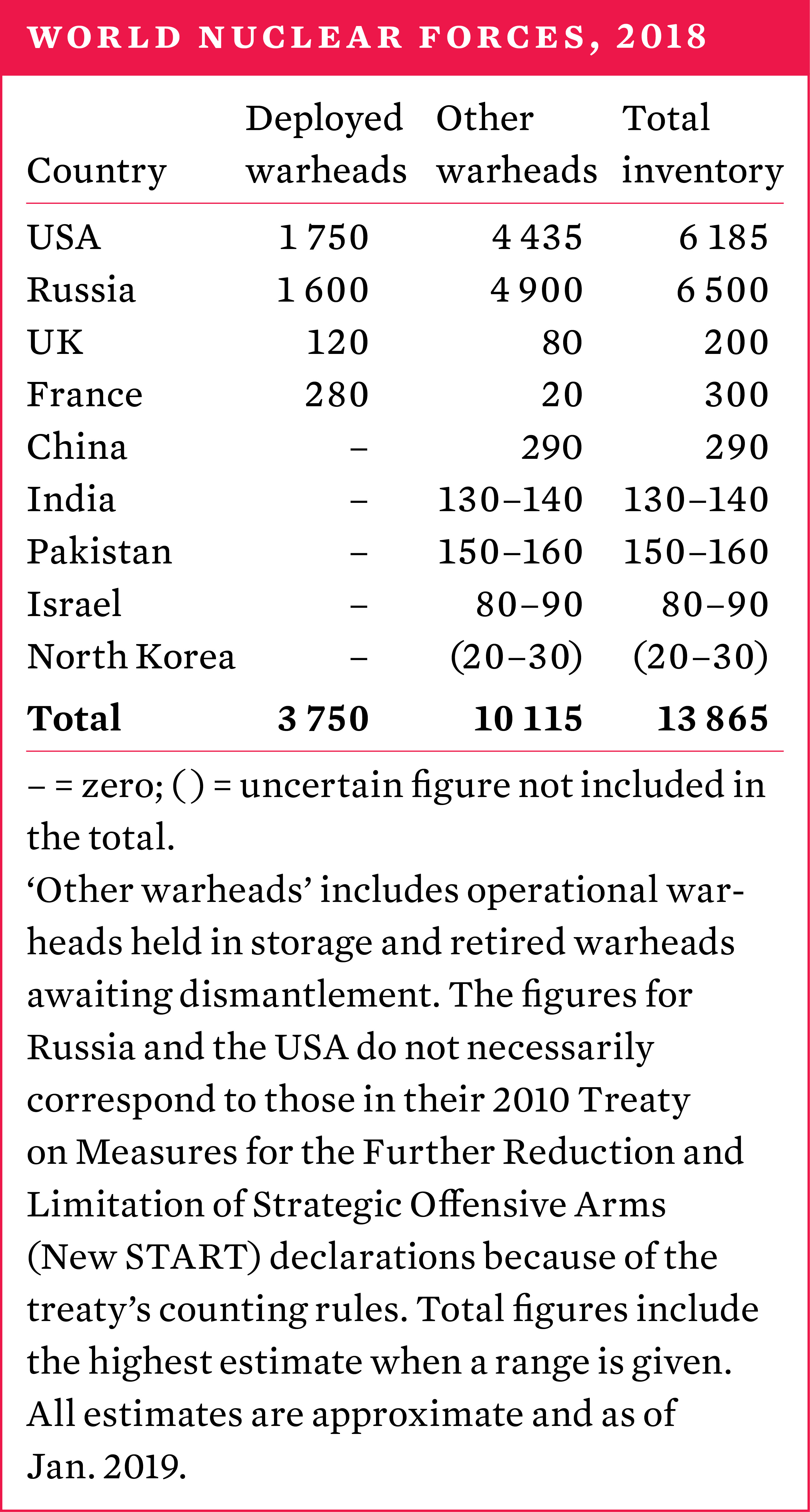6. World nuclear forces
Overview, Shannon N. Kile and Hans M. Kristensen [PDF]
I. US nuclear forces, Hans M. Kristensen [PDF]
II. Russian nuclear forces, Hans M. Kristensen [PDF]
III. British nuclear forces, Shannon N. Kile and Hans M. Kristensen [PDF]
IV. French nuclear forces, Shannon N. Kile and Hans M. Kristensen [PDF]
V. Chinese nuclear forces, Shannon N. Kile and Hans M. Kristensen [PDF]
VI. Indian nuclear forces, Shannon N. Kile and Hans M. Kristensen [PDF]
VII. Pakistani nuclear forces, Shannon N. Kile and Hans M. Kristensen [PDF]
VIII. Israeli nuclear forces, Shannon N. Kile and Hans M. Kristensen [PDF]
IX. North Korea’s military nuclear capabilities, Shannon N. Kile and Hans M. Kristensen [PDF]
X. Global stocks and production of fissile materials, 2018, Moritz Kütt, Zia Mian and Pavel Podvig, International Panel on fissile materials [PDF]
At the start of 2019, nine states—the United States, Russia, the United Kingdom, France, China, India, Pakistan, Israel and the Democratic People’s Republic of Korea (DPRK, North Korea)—possessed approximately 13 865 nuclear weapons, of which 3750 were deployed with operational forces. Nearly 2000 of these are kept in a state of high operational alert.
Nuclear arsenals
Overall, the inventories of nuclear warheads continue to decline. This is mainly due to Russia and the USA, which collectively account for over 90 per cent of global nuclear weapons, reducing their strategic nuclear forces in line with the 2010 Treaty on Measures for the Further Reduction and Limitation of Strategic Offensive Arms (New START) while also making unilateral reductions. However, the pace of their reductions has slowed compared with a decade ago, and neither Russia nor the USA has committed to making further negotiated reductions in their respective nuclear forces. At the same time, both Russia and the USA have extensive and expensive programmes under way to replace and modernize their nuclear warheads, missile and aircraft delivery systems, and nuclear weapon production facilities. In 2018 the US Department of Defense set out plans to develop new nuclear weapons and modify others to give them expanded military roles and missions.

The nuclear arsenals of the other nuclear-armed states are considerably smaller, but all are either developing or deploying new weapon systems or have announced their intention to do so. China is gradually increasing the size and diversifying the composition of its nuclear arsenal. India and Pakistan are expanding their military fissile material production capabilities on a scale that may lead to significant increases in the size of their nuclear weapon inventories over the next decade. North Korea continues to prioritize its military nuclear programme as a central element of its national security strategy, although in 2018 it announced a moratorium on the testing of nuclear weapons as well as medium- and long-range ballistic missile delivery systems.

A lack of transparency
The availability of reliable information on the status of the nuclear arsenals and the capabilities of the nuclear-armed states varies significantly. The USA and the UK have disclosed considerable information about their respective nuclear stockpiles and capabilities, and France has also declared some information. Russia refuses to publicly disclose a detailed breakdown of its forces counted under New START, even though it shares this information with the USA. China now publicly displays its nuclear forces more frequently than in the past but releases little information about force numbers or future development plans. The governments of India and Pakistan make statements about some of their missile tests but provide no information about the status or size of their arsenals. North Korea has acknowledged conducting nuclear weapon and missile tests but provides no information about its nuclear weapon capabilities. Israel has a long-standing policy of not commenting on its nuclear arsenal.
